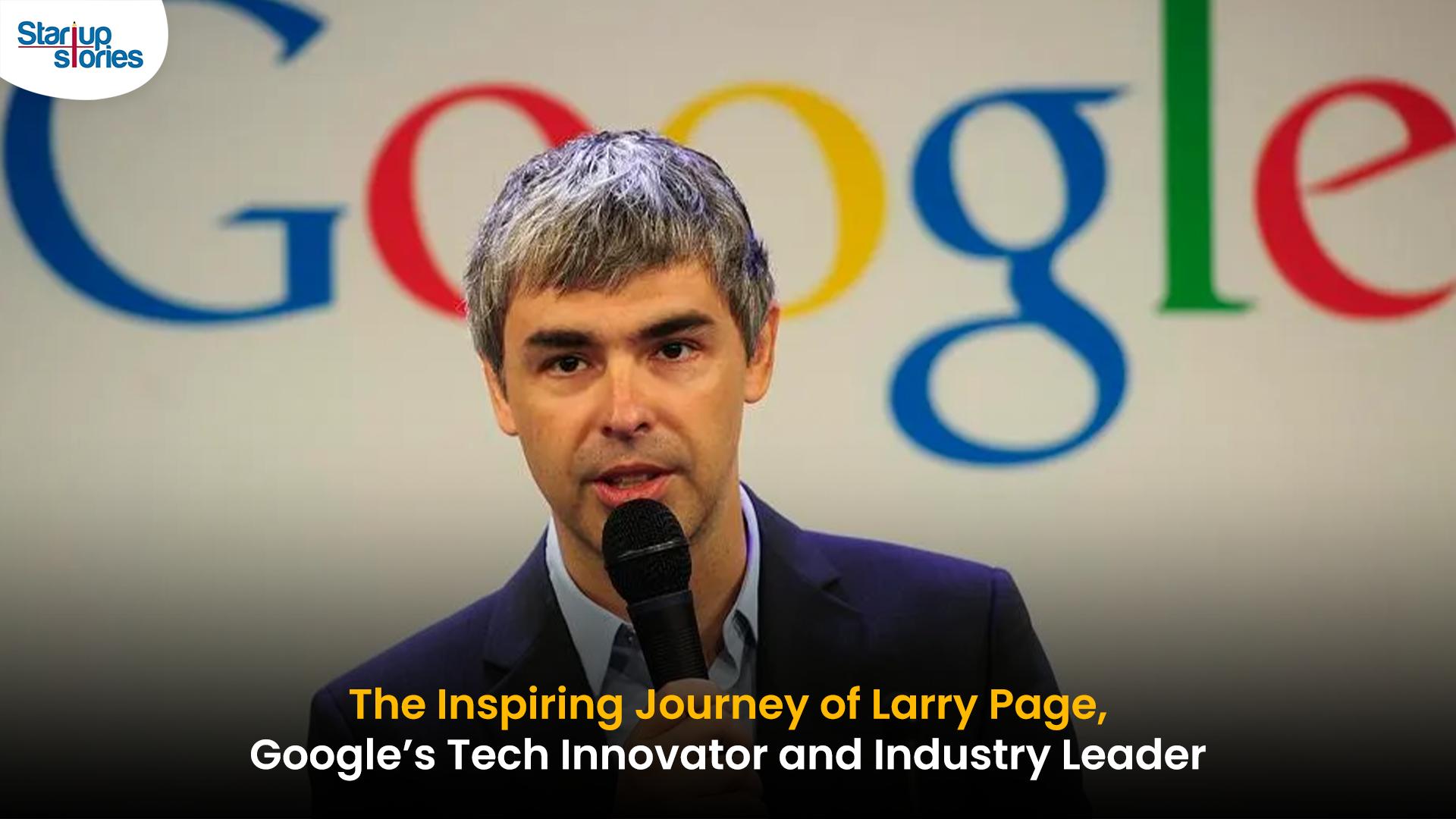Entrepreneur Stories
Wacky Stories About Entrepreneurs

The world of business is quite serious and can seem intriguing at times. However, there are many people out there who proved entrepreneurs can have some really interesting personalities. Here is a list of four crazy things famous entrepreneurs have done.
Wacky stories about famous entrepreneurs
1) Nicolas Berggruen
Famous philanthropist and investor Nicolas Berggruen avoided buying a house for years. He preferred to travel and stay at various hotels all over the world. This unique lifestyle earned him the nickname of “the homeless billionaire.” However, Berggruen decided to settle down and bought a house worth $ 40 million in 2017.
2) Yoshiro Nakamatsu
This Japanese inventor is credited for inventing many things like the floppy disk, jumping shoes with leaf springs and a wig for self defense. He has more than 3,357 inventions to his name. In many interviews, Nakamatsu said underwater diving gives him the best ideas. He also claims to get best ideas when he spends time in his “calm room” made up of 24 karat gold. Nakamatsu also predicts he would live till the age of 144.
3) Steve Jobs
Steve Jobs, the brilliant mind behind the famous Apple Inc., was also a bit eccentric. He was known to be a perfectionist, however, he did many things which are considered crazy. He would soak his feet in toilets in order to relieve stress. At one point, he ate so many carrots, his skin turned orange. He also stopped taking showers after starting a meat free diet, as he believed the diet would help his body not to produce any body odor.
4) Robert Graham
The American entrepreneur, known for developing shatterproof plastic eyeglass lenses, was also an eccentric person. He reportedly opened a sperm bank for geniuses, where donation was expected only from Nobel Prize winners. However, the idea did not work out well.
Which of these crazy stories about famous entrepreneurs surprised you the most? Comment below and let us know.
Videos
T.N. Seshan: The Fearless Reformer Who Redefined Indian Democracy

T.N. Seshan’s name stands tall in India’s history as the man who transformed the nation’s electoral system with extraordinary courage and integrity. Born in 1932 in Kerala, Seshan grew up with values of discipline, education, and service to the nation — virtues that shaped his illustrious journey. From his early brilliance at Madras Christian College to his advanced studies in public administration at Harvard University, Seshan’s path reflected rare determination and intellect. Joining the Indian Administrative Service in 1955, he built a reputation as a no‑nonsense officer committed to efficiency and honesty, serving in key roles such as Secretary of Defense and overseeing vital national programs.
As the Chief Election Commissioner of India in 1990, T.N. Seshan sparked a new era of electoral integrity. In a system once marred by corruption, violence, and malpractice, Seshan brought order, fear, and respect through his groundbreaking reforms. He introduced voter ID cards, imposed strict spending limits on campaigns, and insisted on transparency at every level of the election process. Despite criticism from political circles that labeled him dictatorial, his relentless pursuit of fairness empowered every citizen to vote fearlessly. Under his leadership, the Election Commission became a symbol of strength and integrity in Indian democracy.
Seshan’s passing in November 2019 marked the end of an era, but his message continues to resonate across generations. Leaders from every corner of the country mourned the loss of the man who restored faith in free and fair elections. His enduring legacy reminds us that true leadership lies not in wielding power, but in serving people with honesty, courage, and conviction. T.N. Seshan’s life remains a timeless inspiration a reminder that democracy thrives only when its citizens are vigilant, responsible, and fearless.
Entrepreneur Stories
Indian Man Quits JPMorgan, Takes 70% Pay Cut to Launch $6 Million Startup

Leaving behind a high-paying job at JPMorgan, an Indian entrepreneur embraced a 70% salary cut to pursue true purpose and passion in the startup world. Disenchanted with what he described as a “robotic” corporate routine, he sought meaningful work that made a real impact. This pivotal decision marked the beginning of his new journey, one focused on value creation rather than titles and corporate perks.
Powered by resilience and fresh perspective, the entrepreneur launched his own startup, prioritizing innovation and hands-on solutions. The road was challenging, but his vision resonated with the market: the startup quickly gained traction and raised $6 million—an impressive acknowledgement of its potential in a competitive landscape. Every hard lesson from early setbacks and bootstrapping paid off in real customer growth and investor confidence.
Today, his journey stands as an inspiring example for professionals seeking authentic success outside the corporate grind. By trading comfort for creative freedom, he grew a venture that solves important problems, generates jobs, and builds wealth beyond just salary. For ambitious founders, his story highlights the power of risk-taking, adaptability, and relentless focus on impact in India’s thriving startup ecosystem.
Videos
Larry Page: The Visionary Co-Founder Behind Google’s Global Success

Larry Page is a visionary technology entrepreneur and co-founder of Google, one of the world’s most influential companies. Born in 1973 in Michigan, Page grew up surrounded by computer technology, which inspired his passion for innovation from an early age. He studied computer engineering at the University of Michigan and later pursued his PhD at Stanford University, where he developed the revolutionary PageRank algorithm with Sergey Brin. This technology fundamentally changed the way search engines rank websites, making Google the most accurate and popular search engine globally.
The journey of Larry Page and Google began in 1998 when they officially launched the search engine from a small garage. Leveraging their unique algorithm, Google quickly surpassed competitors due to its ability to deliver highly relevant search results, transforming internet search forever. Under Larry Page’s leadership as CEO, Google expanded beyond search to launch groundbreaking products including YouTube, Gmail, and Google Maps, turning it into a global tech powerhouse that shapes how we access and interact with information online.
Larry Page later became the CEO of Google’s parent company, Alphabet Inc., driving innovation and investment in next-generation technologies such as artificial intelligence, autonomous vehicles, and healthcare solutions. His visionary leadership and commitment to technological advancement have cemented his legacy as one of the most influential figures in the tech industry. Today, Larry Page remains a key influencer in shaping the future of technology and digital innovation worldwide.















MM88
November 5, 2025 at 5:30 pm
Với giao diện mượt mà và ưu đãi hấp dẫn, MM88 là lựa chọn lý tưởng cho các tín đồ giải trí trực tuyến.
站群程序
November 8, 2025 at 2:55 pm
采用高效谷歌站群策略,快速提升网站在搜索引擎中的可见性与权重。谷歌站群
J88
November 9, 2025 at 5:27 am
Đến với J88, bạn sẽ được trải nghiệm dịch vụ cá cược chuyên nghiệp cùng hàng ngàn sự kiện khuyến mãi độc quyền.
ios超级签
November 13, 2025 at 8:56 am
苹果签名,苹果超级签平台,ios超级签平台ios超级签苹果企业签,苹果超级签,稳定超级签名
MM88
November 19, 2025 at 8:13 am
Khám phá thế giới giải trí trực tuyến đỉnh cao tại MM88, nơi mang đến những trải nghiệm cá cược thể thao và casino sống động.
iwin
November 20, 2025 at 2:36 pm
iwin – nền tảng game bài đổi thưởng uy tín, nơi bạn có thể thử vận may và tận hưởng nhiều tựa game hấp
GO88
November 30, 2025 at 10:40 am
Tham gia cộng đồng game thủ tại Go88 để trải nghiệm các trò chơi bài, poker phổ biến nhất hiện nay.
cobra casino app spielen unterwegs
December 20, 2025 at 5:04 am
Freuen Sie sich auch auf 4 Außenpools und das hoteleigene
Fitnesscenter. Die exotische Poollandschaft von Luxor Las Vegas bietet vier
große Swimmingpools und vier Whirlpools. Das Hotel bietet
zudem 4 saisonale Pools und einen Whirlpool.
Das hoteleigene Casino und Theater sorgen für nächtliche Unterhaltung.
Die Zimmer sind freundlich und modern eingerichtet und bieten Annehmlichkeiten wie WLAN, TV,
Telefon und Klimaanlage. Das Casino bietet eine große Auswahl an Spielautomaten und Spieltischen sowie eine Wettarena für Sportbegeisterte.
Die Zimmer sind modern ausgestattet und bieten zusätzliche Annehmlichkeiten wie Ladestationen und Steckdosen.
Das Luxor Hotel in Las Vegas ist ein einzigartiges Hotel mit
seiner markanten Pyramidenform und bietet seinen Gästen ein unvergessliches Erlebnis direkt am Strip.
Aber wieso sollte man mehr Geld ausgeben wenn bereits das
preiswerteste Essen rundweg �berzeugt. In der Mitte des Raumes bietet eine lange Thekefrische
Salate und Obst w�hrend kleinere Buffets an den Au�enseiten Nachtische
wie Pudding oder Kuchen vorhalten. Viele haben sicherlich schon von den gro�enBuffets
geh�rt, die eigentlich jedes gr��ere Hotel in Las Vegas anbietet.
References:
https://online-spielhallen.de/bwin-casino-freispiele-alles-was-sie-wissen-mussen/
pokies no deposit bonus australia
December 27, 2025 at 7:54 am
OpenAI allows users to save chats in the ChatGPT interface,
stored in the sidebar of the screen. However,
users have noted that there are some character limitations after around 500 words.
And nonprofit organization Solana officially integrated the chatbot
into its network with a ChatGPT plug-in geared toward end users to help onboard into the web3 space.
The image generator was made available to all ChatGPT users on March 31, and went viral for being able to
create Ghibli-style photos. More than 130 million users have created over 700 million images since ChatGPT got the
upgraded image generator on March 25, according to COO of OpenAI Brad Lightcap.
AI researcher Tibor Blaho spotted a new “ImageGen” watermark feature in the new beta of ChatGPT’s Android app.
It looks like OpenAI is working on a watermarking feature for images generated using GPT-4o.
OpenAI plans to sunset GPT-4, an AI model introduced more than two years
ago, and replace it with GPT-4o, the current default model, per changelog.
References:
https://blackcoin.co/casino-utan-svensk-licens-jamfor-alla-basta-casinon-utan-spelpaus/
enrollment guide
December 27, 2025 at 7:54 pm
The minimum dress standard for the Casino is
neat casual and footwear is required at all times.
Casino chips are also accepted when ordering beverages at the gaming tables or gaming machines.
As of 12 January 2024, casino chips will only be accepted for purchases at the following outlets within the
Casino. As Poker is a game of luck and skill, you can start winning from the get-go.
Poker is a great social game that’s easy to learn, and
great fun even if you’re a novice. With an entertainment
calendar packed with 24/7 sport, live music and the thrill of the
casino, Crown Perth is the city’s must-visit destination.
The games will be broadcast on Twitch and teams will be
represented by real football stars. Unfortunately,
things aren’t so great with everything the game offers.
The most famous series of football simulations and also one of the most popular sports series in the history of
the video game industry.
Indulge in a dining experience at the Epicurean Perth, nestled within the luxurious
Crown Towers Perth. Explore all that Crown Perth has to offer
across hotels, bars, entertainment and more. From sizzling stir-fries to mouth-watering pasta dishes, these stations add an exciting dimension to your dining experience.
References:
https://blackcoin.co/all-caesars-properties-in-las-vegas-2025-list/
www.jobassembly.com
December 29, 2025 at 9:34 am
mobile casino paypal
References:
http://www.jobassembly.com
www.smilecarexport.com
December 29, 2025 at 9:47 am
online slots paypal
References:
http://www.smilecarexport.com
https://sosjob.ca/employer/the-10-most-popular-online-casino-games/
December 30, 2025 at 2:21 pm
paypal casinos online that accept
References:
https://sosjob.ca/employer/the-10-most-popular-online-casino-games/
www.dynamicviewpoint.co.uk
December 30, 2025 at 2:39 pm
online betting with paypal winnersbet
References:
https://www.dynamicviewpoint.co.uk/employer/slots-online-games-for-real-money-best-10-casinos-december-2025/